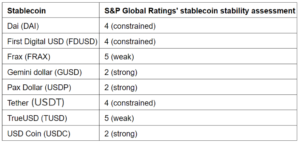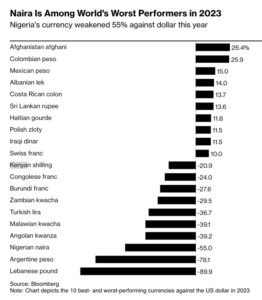The International Monetary Fund (IMF) has recommended that Kenya establish a transparent and predictable regulatory framework for the cryptocurrency market to safeguard consumers and mitigate risks associated with Anti-Money Laundering (AML) and Combating the Financing of Terrorism (CFT).
“At the request of the Capital Markets Authority (CMA) of Kenya, the Monetary and Capital Markets Department (MCM) and Legal Department (LEG) of the IMF visited Nairobi, Kenya to conduct a diagnostic analysis of crypto-asset activities and the related regulatory and legal framework in Kenya during February 12-16, 2024.
The mission also provided in-house lectures covering key regulatory and legal concepts, as well as lessons learned from the failure of FTX for the implementation of regulatory frameworks and the conduct of crypto asset activities supervision.”
According to the IMF report, Kenya relies on outdated regulations designed for traditional markets, which have ‘limited and no legally binding‘ authority over cryptocurrency markets. Consequently, the country has experienced a rise in crypto-related scams and other illicit activities.
During the consultations in Nairobi, Kenya, the IMF staff noted a ‘significant degree of uncertainty and lack of consensus‘ among Kenyan lawmakers regarding the regulation of crypto assets.
Moreover, the authority cast doubt on the data collection methods used by authorities and regulators in Kenya to understand the sector.
Why Kenya Does Not Have 4.5 Million Crypto Users as Widely Reported by Kenyan
media outlets: https://t.co/F90szcHfSw @citizentvkenya
— BitKE (@BitcoinKE) October 20, 2021
- In its recommendations, the IMF urged Kenya to establish a regulatory framework for cryptocurrencies that aligns with international standards and practices.
“The development of this framework should consider the unique challenges and opportunities within Kenya’s crypto market, ensuring it is robust, transparent, and capable of fostering innovation while protecting consumers and maintaining financial stability.”
- In the short term (6–12 months), the IMF recommends Kenya conduct empirical analysis, foster collaboration and education among regulators, and clarify the scope of existing regulations.
- For the medium and long term (12–24+ months), suggestions include developing a legal and licensing framework, enhancing supervisory resources, and aligning Kenya’s regulatory system with international standards.
REGULATION | Kenya Invites Public Comments on Draft Crypto Regulations, Deadline Set for January 24 2025
Members of the public are invited to come and give their views on the two documents in the locations below. https://t.co/AjE8PC3Ol6 @KeTreasury pic.twitter.com/ODfr1rRRZE
— BitKE (@BitcoinKE) January 10, 2025
- The IMF also urged Kenyan authorities to go beyond surveys and questionnaires to conduct a deeper analysis of the crypto market.
REGULATION | The Kenya Financial Reporting Centre (FRC) Launches a Public Survey on Virtual Assets:
The FRC says it has teamed up with other government institutions and the private sector, including crypto industry stakeholders, to produce the survey on crypto assets in… pic.twitter.com/asHMUeXG6a
— BitKE (@BitcoinKE) August 21, 2023
- Additionally, Kenya should clearly define crypto assets under financial laws, avoiding conflicting terms (e.g., digital currency vs. virtual asset) to ensure legal consistency.
- Finally, the IMF recommended that Kenya collaborate with foreign regulators to address risks associated with international exchanges operating within the country and to promote cross-border cooperation for effective regulatory enforcement.
Here is a full list of the key recommendations by the IMF, timeline for implementation, and the responsible authority:
- [Short-term] Conduct or commission a comprehensive empirical market analysis of the current state of the Kenyan crypto asset market as well as a comprehensive assessment of the financial sector, market, conduct, and consumer protection risks based on the market analysis.
Responsible authority – Technical Working Group (TWG)
- [Short-term] Agree on a cross-agency understanding of the current state of the crypto asset market and the associated risks and define an appropriate policy response based on the mutual understanding.
Responsible authority – Technical Working Group
- [Medium-term] Conduct a risk-based stock taking exercise of crypto assets currently traded/used in the Kenyan market as to whether these assets are already covered by existing regulations. Given the prevalence of peer-to-peer crypto asset activity, the stock taking exercise should attempt to gauge the extent and associated use cases as comprehensively as possible.
Responsible authority – Capital Markets Authority (CMA) and the Central Bank of Kenya (CBK)
- [Medium-term] Consider further measures to increase financial literacy among potential investors in crypto assets.
Responsible authority – Joint Financial Sectory Regulators Forum (JFSRF)
- [Medium-term] Implement an effective cooperation mechanism across relevant authorities to facilitate comprehensive supervision of the entire crypto asset market.
Responsible authority – Capital Markets Authority (CMA) and the Central Bank of Kenya (CBK)
- [Short-term] Clarify scope of the CMA Guidelines taking into account applicable international standards, in particular IOSCO Policy Recommendations for Crypto and Digital Asset Markets (FR11/2023).
Responsible authority – Capital Markets Authority (CMA)
- [Medium-term] Ensure that adequate technical and human resources are in place to allow for the effective supervision of crypto asset activities. Supervisory staff should be regularly trained.
Responsible authority – Technical Working Group (TWG) and Capital Markets Authority (CMA)
- [Medium and Long-term] Ensure legal certainty by implementing an adequate legal framework, including a clear institutional set-up and inter-agency processes to ensure a comprehensive and effective regulation and supervision of crypto asset activities. The adequacy of these processes should be regularly reviewed and assessed against developments in crypto asset market activities in Kenya and developments of international regulatory standards.
Responsible authority – Capital Markets Authority (CMA), the Central Bank of Kenya (CBK), and National Treasury
_________________________________________


